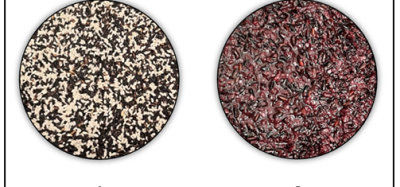Low/no calorie sweeteners could contribute to public health strategies
- Like
- Digg
- Del
- Tumblr
- VKontakte
- Buffer
- Love This
- Odnoklassniki
- Meneame
- Blogger
- Amazon
- Yahoo Mail
- Gmail
- AOL
- Newsvine
- HackerNews
- Evernote
- MySpace
- Mail.ru
- Viadeo
- Line
- Comments
- Yummly
- SMS
- Viber
- Telegram
- Subscribe
- Skype
- Facebook Messenger
- Kakao
- LiveJournal
- Yammer
- Edgar
- Fintel
- Mix
- Instapaper
- Copy Link
Posted: 24 January 2020 | Sam Mehmet (New Food) | No comments yet
A report has collected science based evidence which points to the health benefits of low/no calorie sweeteners.


The International Sweeteners Association (ISA) has welcomed the publication of a new scientific report1 which points to the extensive body of robust scientific evidence that shows that low/no calorie sweeteners can offer the following benefits:
- Safety: all sweeteners are said to have undergone an extensive safety evaluation process by food safety authorities globally prior to being approved for use on the market
- They have no adverse effect on blood glucose regulation in people with and without diabetes and lead to a lower blood glucose rise compared to sugar – they have therefore a role to play in the dietary management of diabetes when used as substitutes for sugars
- They can help reduce net calorie intake while providing the desired sweet taste, when used in place of sugar to reduce energy density of foods and drinks
- They can be part of the strategies to consider to reduce sugars intake, in line with public health recommendations worldwide aimed at reducing the risk and prevalence of obesity, a major public health concern.
While reduction in the intake of sugars is being recommended around the world to address the increasing rates of obesity, the authors agreed on the need for evidence-based communication to ensure more informed public health decisions and public attitudes towards low/no calorie sweeteners.
Commenting on the paper, lead author Dr Margaret Ashwell highlighted that: “The aim of our workshop was to stimulate forward thinking as well as to restate principles. It is the consensus of the panel that the substantial body of evidence around low calorie sweeteners’ safety and role in helping people reduce their sugar and calorie intake, a public health priority, should be communicated in a consistent manner.”
Co-author, Sigrid Gibson, added: “We [the 17 panel experts] came together to discuss and debate what we really do know, what we do not know yet know, and what should be done in relation to research on low calorie sweeteners, in light of current public health policies. This experts’ consensus is important because it provides clarity to communicators, so that they know they can give a message with confidence. So, we hope that the recommendations arising from this workshop will assist policy makers and other stakeholders including NGOs, health professionals, research funding bodies and the food and beverage industry.”
References
1. The publication of this paper by Ashwell et al. and it follows a consensus workshop on low/no calorie sweeteners held in November 2018 and supported by the International Sweeteners Association (ISA). This workshop gathered seventeen leading international experts on low/no calorie sweetener-related topics who reviewed and discussed the existing science relating to the use of low/no calorie sweeteners as relevant to current public health policies. The workshop was preceded by the third International Sweeteners Association (ISA) Conference entitled ‘The science behind low calorie sweeteners: where evidence meets policy’ (https:/
Related topics
Health & Nutrition, Ingredients, Obesity, Research & development, The consumer









